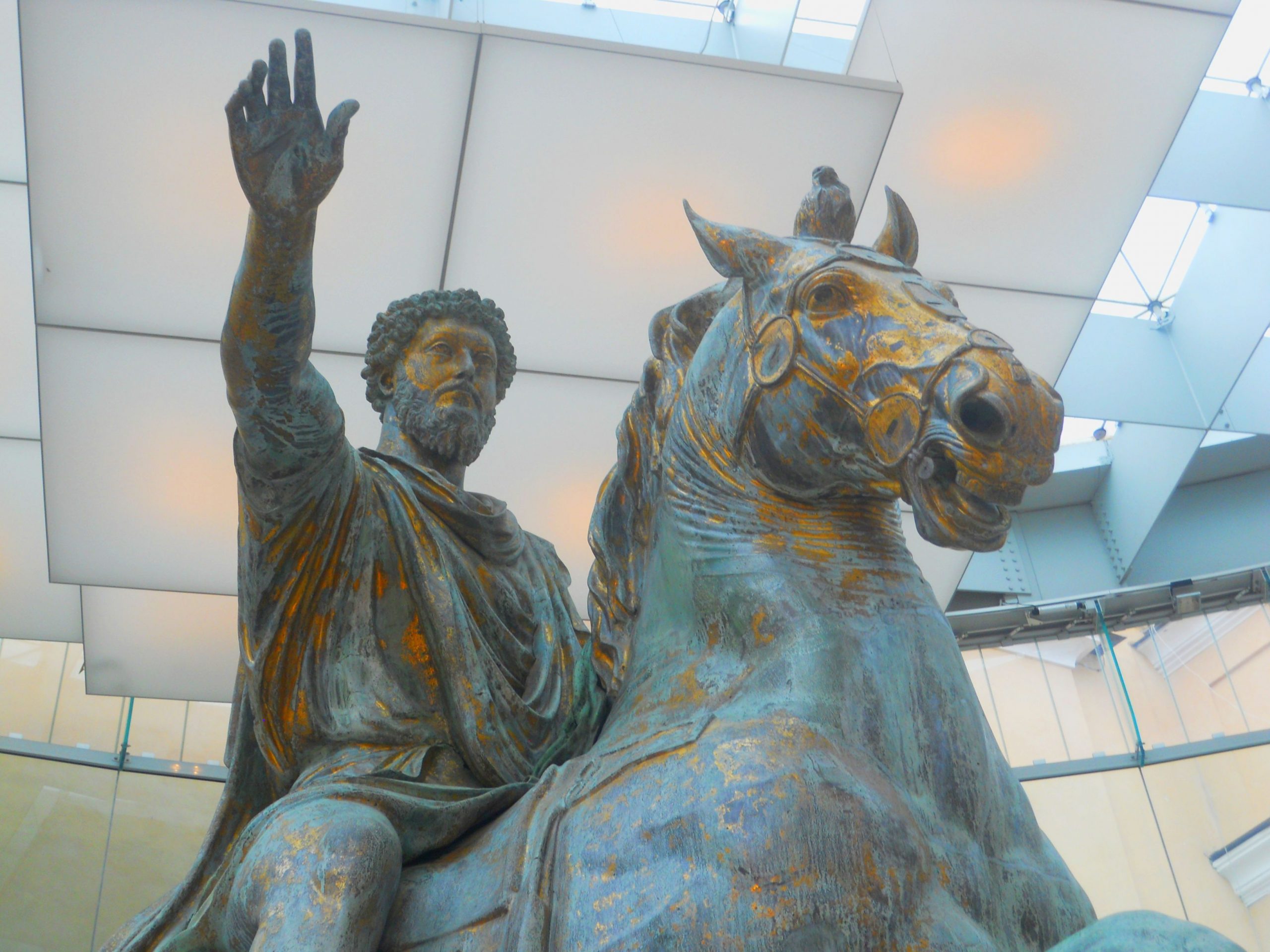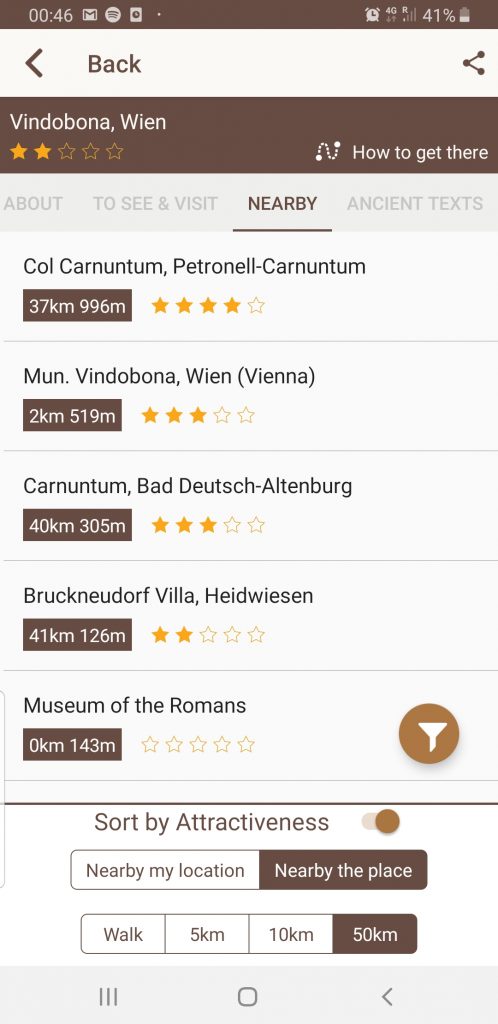Philosopher Emperor
By all accounts, Marcus Aurelius truly embodied the principles he embraced, and he proved his faithful devotion to virtue throughout his rule by his actions. The Historia Augusta described him as “devoted to philosophy as long as he lived and pre-eminent among emperors in purity of life.” Cassius Dio stated that Marcus Aurelius “refrained from all offences and did nothing amiss whether voluntarily or involuntarily,” and the historian Herodian wrote that “Alone of the emperors, he gave proof of his learning not by mere words or knowledge of philosophical doctrines but by his blameless character and temperate way of life.” Even the Christian author Melito called him “the philosopher,” and described him as more philanthropic and philosophic than both Antoninus and Hadrian. His only real failure was that he produced a son, thereby ending the line of emperors adopted for suitability rather than family name.
Love of Learning
Marcus dedicated himself to intellectual pursuits quite early in his life, and he maintained a deep affection for his teachers even as he rose to the heights of power. In fact, he used his powers as emperor to confer many honors upon his tutors, particularly one Marcus Cornelius Fronto, who remained a close friend and correspondent.
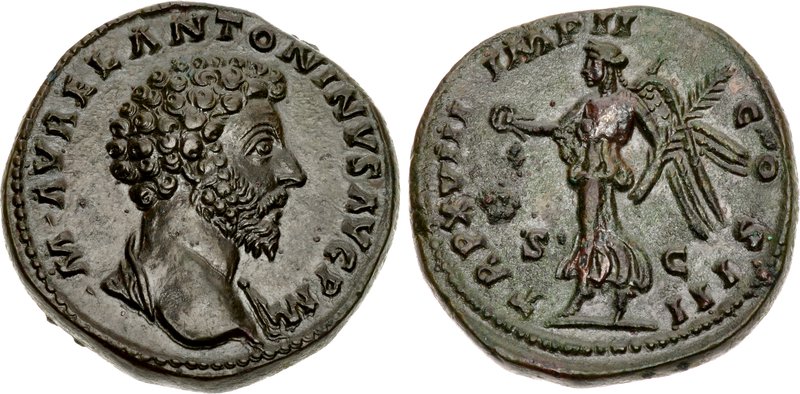
A collection of letters between Marcus Aurelius and Cornelius Fronto have been found and published. Soon after Marcus rose to power, Fronto wrote to express his pride in his pupil, telling him “There was then an outstanding natural ability in you, there is now perfected excellence. There was then a crop of growing corn, there is now a ripe, gathered harvest. What I was hoping for then, I have now. The hope has become a reality.”
Even as the emperor of Rome, Marcus continued to receive instruction in Stoic philosophy at the home of Apollonius. Furthermore, Marcus commissioned statues of all of his most influential teachers, which he kept in his bedroom. When one of them died, he would make frequent visits to the tomb to personally bring flowers and perform sacrifices.
The Syrian Revolt
Following the death of Lucius, Marcus received an opportunity to also demonstrate his leniency when Roman general Avidius Cassius unexpectedly became the leader of a rebellion in the province of Syria. Cassius Dio asserts that the rebellion was actually a mistake instigated by Marcus’s wife, Faustina the Younger. Marcus had long been in poor health, and Faustina apparently feared that he would die before their son Commodus was old enough to take the throne. She subsequently reached out to Cassius, offering him regency over the empire until Commodus came of age and her own hand in marriage should Marcus Aurelius pass unexpectedly.
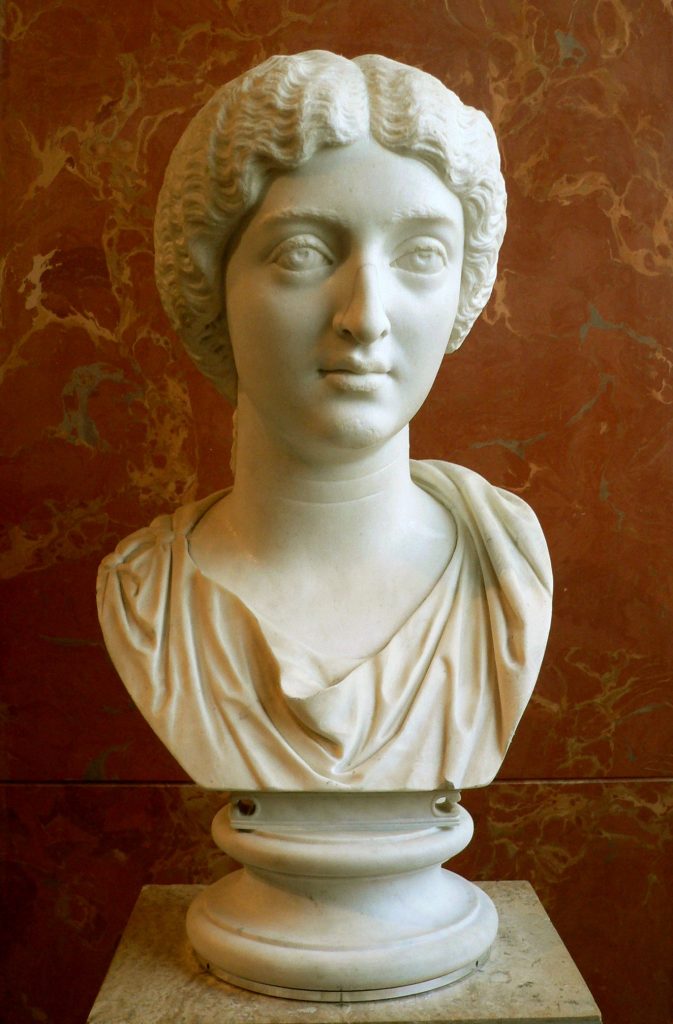
It was reasonable enough to plan for such an eventuality, but unfortunately, sometime after the plan was in place, a false rumor circulated claiming that Marcus was dead. Not waiting for confirmation, Cassius declared that his soldiers had proclaimed him emperor, and prepared to fight for the throne. When he learned that Marcus was still very much alive, he ultimately decided to proceed with his bid for power, even though Marcus pleaded with him to agree to peace terms, lamenting the fact that he was to be forced into war with someone he still considered to be a dear friend. He even asserted that he would hand over the empire to Cassius if the general would just agree to a diplomatic end to the violence, but he knew, correctly as it would turn out, that Cassius would never trust that assurance enough to come to Rome. Though many foreign soldiers offered their assistance to Marcus in the campaign, he refused them all, insisting that Roman matters should remain between Romans.
A Merciful Ruler
In an address to his soldiers, Marcus told them that he feared only one thing, “that either [Cassius] will kill himself…or that someone else will do so upon learning that I am to come. For then I should be deprived of a great prize both of war and of victory, a prize such as no human being has ever yet obtained: To forgive a man who has wronged one, to remain a friend to one who has transgressed friendship, to continue faithful to one who has broken faith… that would be the one profit I could derive from our present ills, if I could settle this affair well and show to all mankind that there is a right way to deal even with civil wars.”
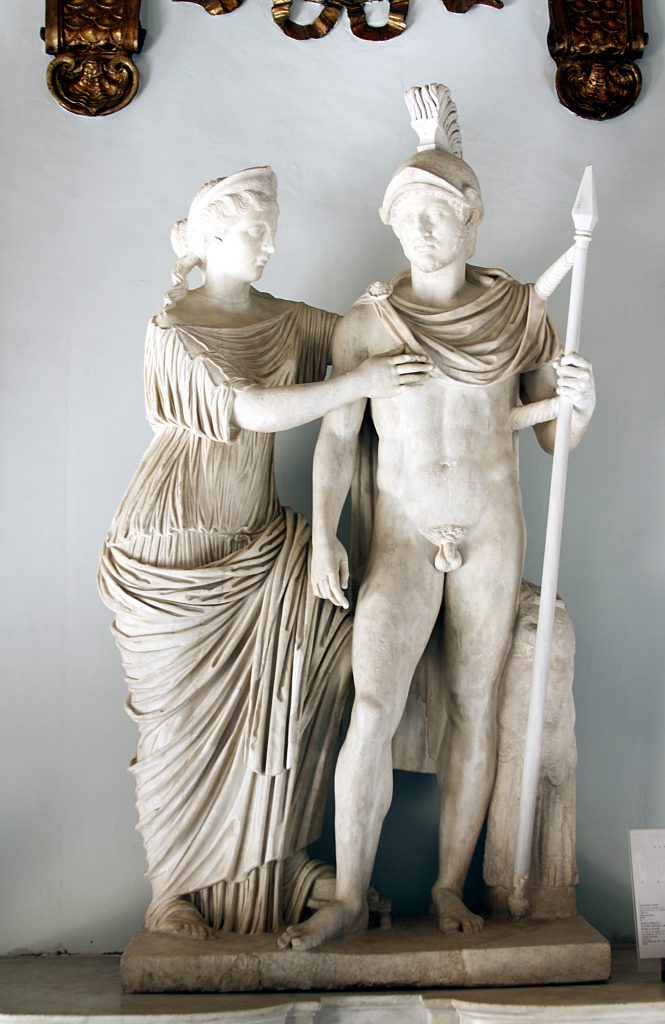
Marcus’s fears proved true, for upon learning that Marcus was not dead; Cassius’s own soldiers turned on him and killed him. They triumphantly brought the head to Marcus, but he refused to even look at it, instead mourning the loss and ordering the head to be buried with all honors and respect. He would not punish the province, or even any of the Senators that had declared for Cassius. He burned all papers that might implicate them and resolved to leave the trials entirely in the hands of the Senate.
Yet even if he was not directly responsible, he abhorred the thought of more death, and instead wrote to the Senate and begged them, as a personal favor, not to execute any of the Senators convicted as traitors. “May it never happen,” he continued, “that any one of you should be slain during my reign either by my vote or by yours.”
Death at Vindobona
About this same time, Faustina the Younger died, though historians debate whether it was due to natural illness or whether she committed suicide rather than be implicated in the plot against her husband. If the latter, it was almost certainly not known by her contemporaries, for the Senate decreed that silver images of Marcus and Faustina be placed in the temple of Venus and Rome, and that a golden statue be made of Faustina to sit beside Marcus any time he attended the theatre. This statue became the gathering place of all the most influential women in Rome.
Marcus was devastated by his wife’s death, but he had little time to mourn. The Germanic tribes to the north began another rebellion. Without Lucius, Marcus went himself to oversee the campaign. Though the army was largely successful, Marcus’s health was failing rapidly. On March 17th of 180 A.D., in the military camp at Vindobona, Marcus commended the care of his son Commodus to his soldiers and assigned the watchword for the day: “Go to the rising sun; I am already setting,” before closing his eyes for the last time.
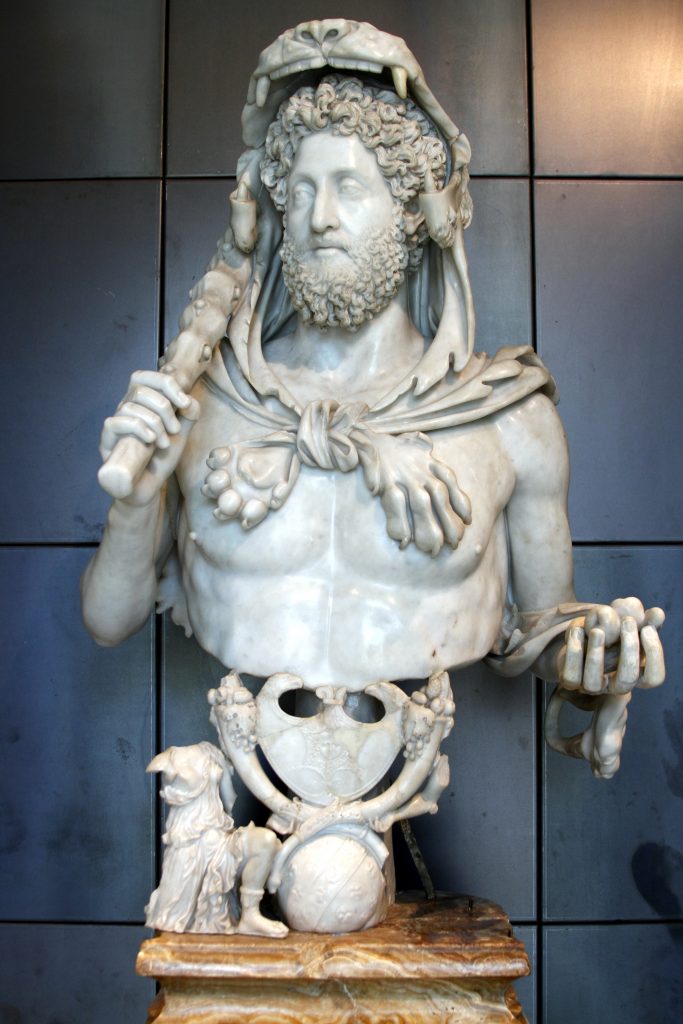
Though suspicion of conspiracy and murder later arose, rumors that formed the plot of the movie Gladiator, there is little evidence to support these. Commodus had been named Caesar and the presumptive heir to Marcus as far back as 166 A.D., and had been serving for years in the capacity of Marcus’s subordinate co-emperor, as Marcus had with Antoninus Pius.
A Venerable Legacy
Generous, lenient, merciful, gentle, frugal, intelligent, and a skilled administrator, all ancient historians remember Marcus as an excellent ruler of Rome. Cassius Dio named him the greatest emperor in Roman history. “Such love for him was manifested on the day of the imperial funeral that none thought that men should lament him, since all were sure that he had been lent by the gods and had now returned to them. Finally, before his funeral was held, so many say, the senate and people, not in separate places but sitting together, as was never done before or after, hailed him as a gracious god.” The Senate commissioned a golden statue of Marcus that they erected in their meeting hall.
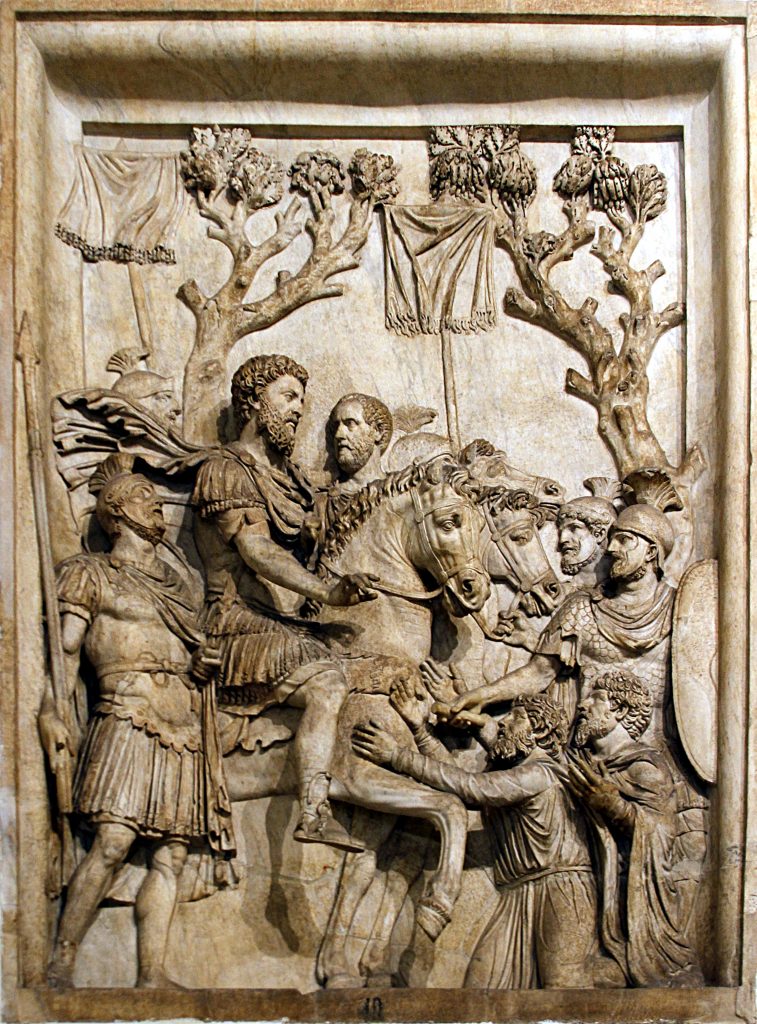
Unfortunately, Marcus’s son Commodus proved an erratic and irresponsible emperor, to the point that he was assassinated in a conspiracy by his own Praetorian Guard after only twelve years of rule, and Rome descended “from a kingdom of gold to one of iron and rust.”
What to See in Vindobona now ?
Unfortunately not much of Vindobona is extant above the surface. Its location under Vienna has made much of the site completely inaccessible to archaeologists and extensive excavations impossible to conduct. As mentioned previously, the best evidence for the original outline, is to be found in the modern street layout which follows what would have been the camp’s exterior walls. Whilst it is impossible to gain a complete understanding of the interior of Vindobona, Roman military camps usually followed a uniform pattern, allowing Archaeologists to compare data from other similar sites and work out the probable location of several buildings.
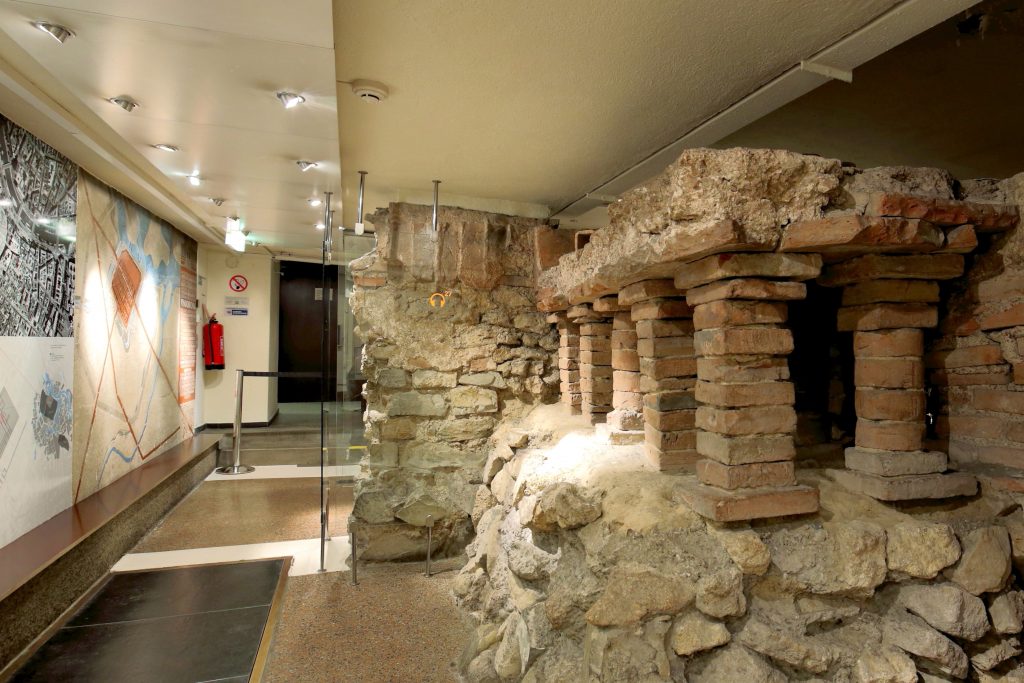
It is possible for visitors to view the foundations of several small buildings from the civilian settlement, probably the residences of soldier’s families. These were discovered whilst excavating in the Michaelerplatz and have been left on permanent display. Although it is not possible to view much of Vienna’s Roman archaeology in situ, there are several museums with excellent Roman collections. These include the Wien Museum and the Romermuseum, which includes the remnants of two tribunes’s houses amongst its collection.
Vindobona on Timetravelrome App:
Author: Marian Vermeulen for Timetravelrome
Header image: Marcus Aurelius Statue. Picture by Erik Drost, licensed under CC BY 2.0.
